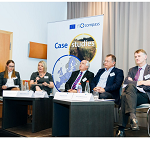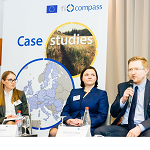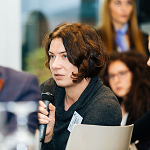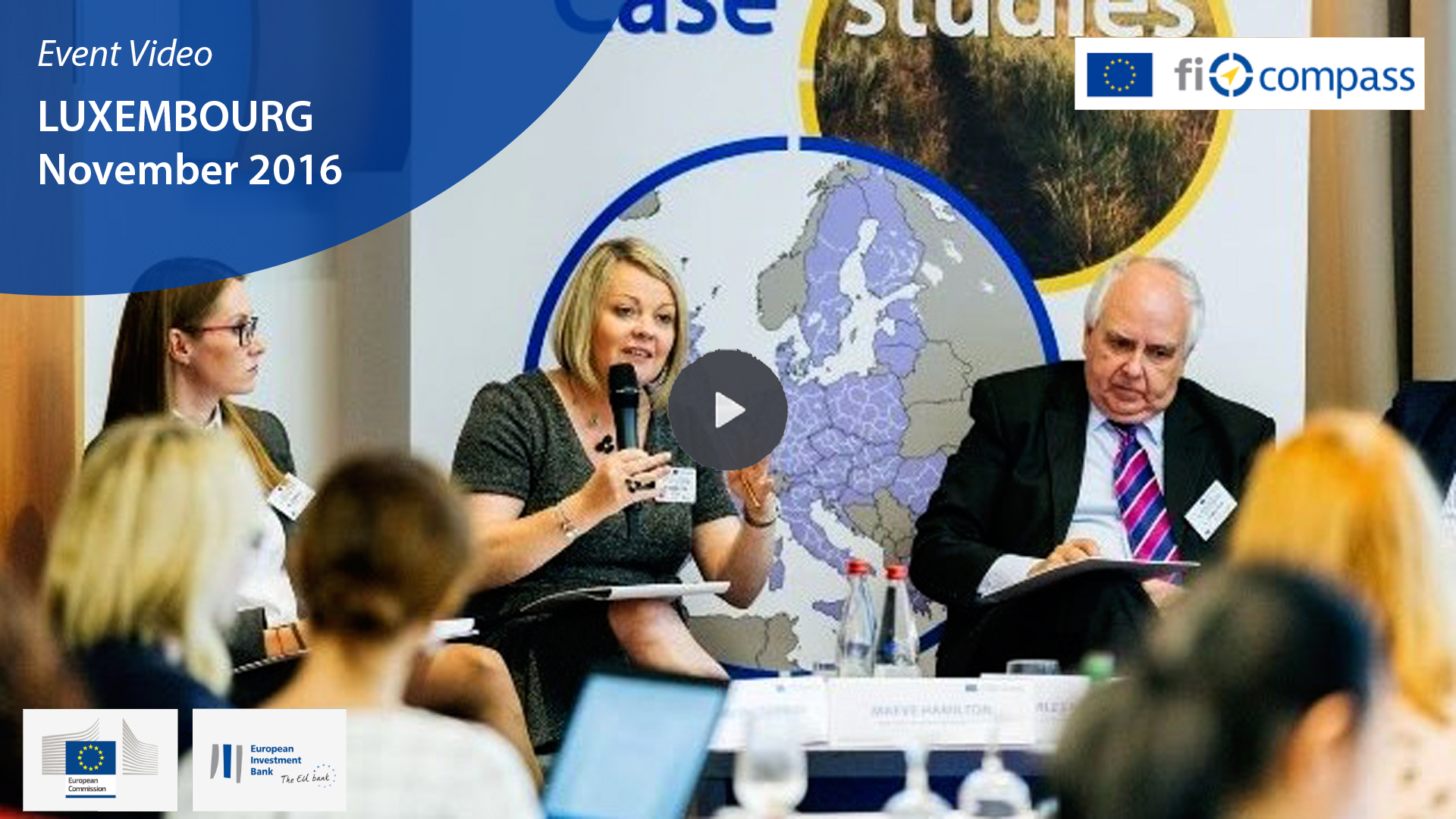Financial instruments for enhancing SME competitiveness in the programming period 2014-2020
Overview

Picture: Miglena Dobreva, European Investment Bank; Maeve Hamilton, Department of Economy, Northern Ireland; Charles Hamilton, Invest Northern Ireland; Hal Wilson, Pentech Ventures; William McCulla, Invest Northern Ireland
SME competitiveness is a focus of attention across the European Union. An event on 16 November in Luxembourg concentrated on how risk capital financial instruments can promote this.
Experts involved in financial instrument implementation from Northern Ireland and Estonia shared their experience through presentations and vibrant question and answer sessions.
This fi-compass thematic workshop included 60 delegates from 18 Member States representing managing authorities, regional and national authorities, intermediate bodies and financial intermediaries.
Pieter Coppens from the European Investment Bank welcomed participants to this workshop, set up to encourage dialogue and exchange of experience among participants, speakers and representatives from the European Investment Bank Group.

Picture: Miglena Dobreva, European Investment Bank; Kadri Mats, KredEx, Estonia; Krisjanis Zarins, European Investment Fund
The speakers from Northern Ireland explained how the Access to Finance Solutions for SMEs in Northern Ireland had been established very early in the programming period, based on their experience of using financial instruments during the previous programming periods. This gave them the opportunity to share their experience with ESIF financial instruments in an advanced stage of implementation. They were able to highlight the importance of close cooperation between all stakeholders involved, especially ensuring the procurement process and State aid rules were respected, but also to ensure that supporting the growth of businesses in Northern Ireland remained the clear objective.
The advantage of having speakers from the managing authority, the intermediate body and a fund manager meant that the entire design, set-up and implementation process could be described in more detail, which highlighted the cooperation between the stakeholders as well as their shared vision.
This direct experience encouraged participants to ask detailed questions about the implementation of this financial instrument, as well as the approach taken under specific circumstances.

Picture: Q&A and peer-to-peer discussion at the event
In the afternoon, the benefits of combining resources from the European Structural and Investment Funds and the European Fund for Strategic Investments in financial instruments for SME competitiveness was presented by KredEx, representing the EstFund investment committee, and the European Investment Fund (EIF) acting as fund of funds manager.
Previous experience of working together and the EIF’s expertise with implementing risk capital financial instruments ensured this Estonian fund of funds was established efficiently. EstFund has a clear investment strategy and co-investment from the EIF, which should attract significant private investment.
Questions and requests from participants covered a wide range of issues concerning implementation, including specifics of combining ESIF and EFSI resources for particular target final recipients.
The workshop included valuable exchanges of best practices and networking opportunities. This was reflected in the statements from participants at the end of the workshop, where they emphasised the great benefit of being able to talk to people with similar experience and to benchmark their own progress.
| Title | Speakers | ||
|---|---|---|---|
| |
Access to Finance Solutions for SMEs in Northern Ireland The slides were updated after the workshop as the case study |
Maeve Hamilton, Dept. of Economy NI Charles Hamilton, Invest Northern Ireland William McCulla, Invest Northern Ireland Hal Wilson, Pentech Ventures |
|
| |
EstFund – ESI Fund and EFSI Combination in Estonia |
Kadri Mats, KredEx Krisjanis Zarins, European Investment Fund |


